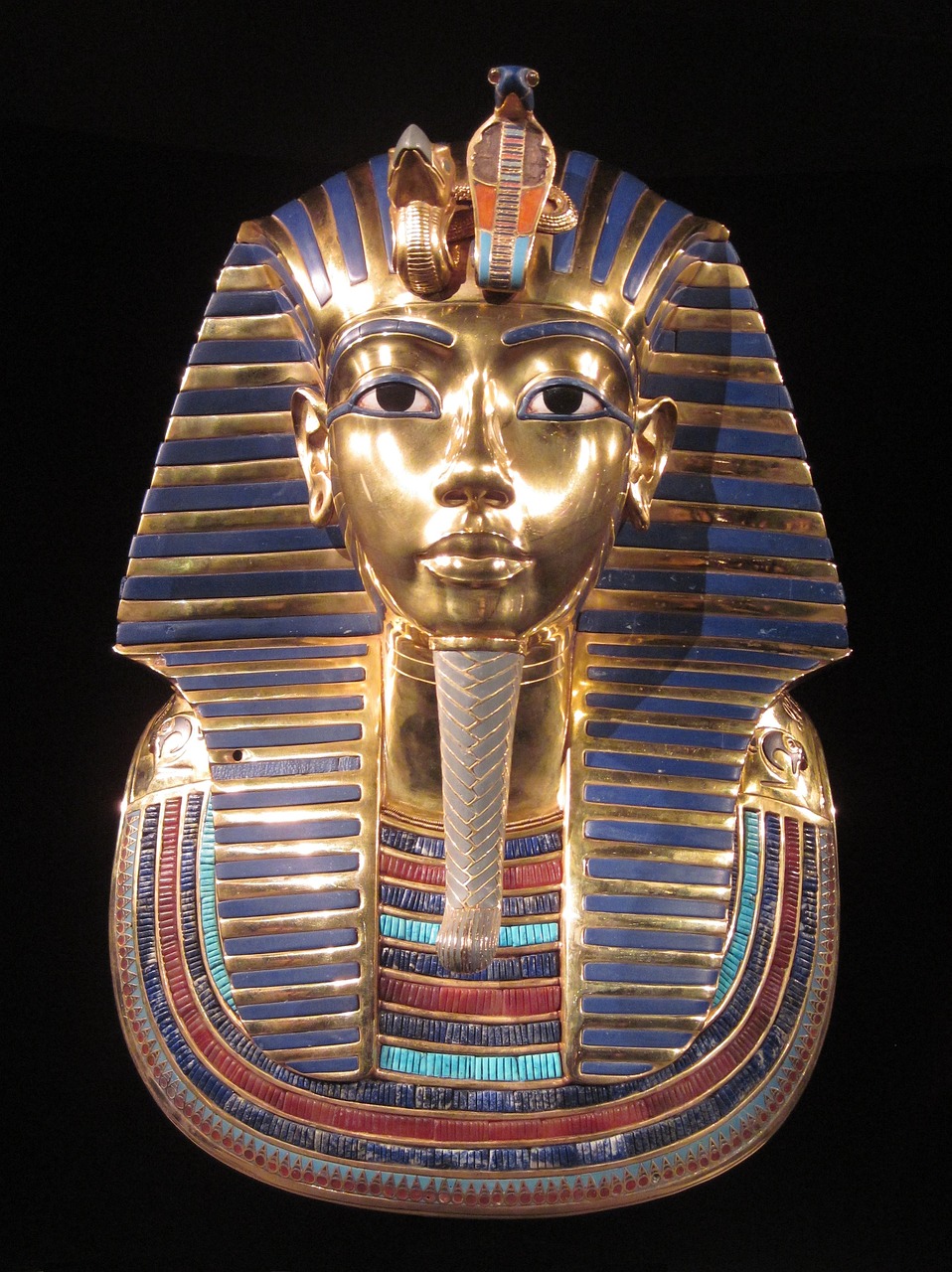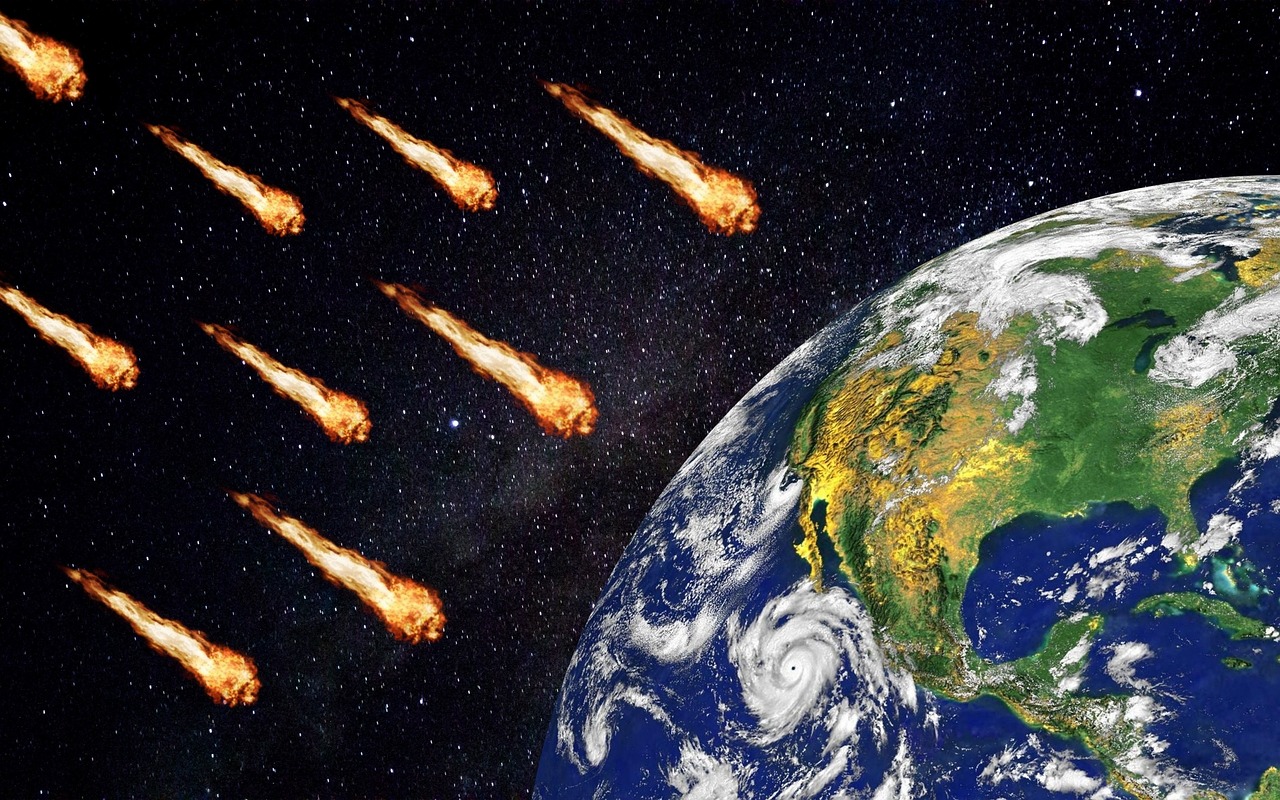Below are the ORIGINAL, CORRECT versions of the editing challenges. Compare them to to the corrections you made.
Keep in mind there’s often more than one way to correct the same mistake. Just because your version is not identical to mine does not necessarily mean it is wrong. E-mail me with any doubts or questions – the first three consultations are FREE!
All editing challenges are adapted from https://www.dailytoday.com (2023) or https://www.history.com/this-day-in-history (2022).

Holidays this Month: To Shave Or Not To Shave
It’s no surprise that November is Adopt a Turkey Month, but have you heard about Manatee Awareness Month? Men have to choose between resembling one or the other during No-Shave November. If you’re looking for another way to feel manly, it’s also Repair Done Right Month. Then again, the implication there is that you’re probably better off calling a professional than trying to fix the dishwasher yourself. As long as they arrive on time, try to be civil about it.

Holidays this Month: Young Novelists
Now that the worst of the Halloween sugar rush is over, parents can go back to appreciating their kids. Some countries even celebrate this as Children’s Month or, if you don’t have any of your own, Adoption Month. College is expensive, so don’t forget Scholarship Month, either. Regardless of age, everyone is encouraged to pick up a pen (or keyboard) this November for National Novel Writing Month. Can you finish a 50,000 story (roughly two hundred pages) in thirty days?

Holidays this Month: Inspirational Families
Families come in all shapes and sizes, and we celebrate all their stories this November. First, we honor veterans and the loved ones who support them. Families with Native American heritage remind us that the Pilgrims wouldn’t have gotten far without Squanto’s help. Lost brothers and sisters are remembered during Worldwide Bereaved Siblings Month, and we also recognize the challenging work of homecare and hospice workers. Thanks for making the world a better place during Inspirational Role Models Month!

Holidays this Month: What a Feast
I’m not roasting you: November is National Gratitude Month. I am grateful for all the great food! Turkey Day aside, rice, peppers, pomegranates, raisin bread, banana pudding, and peanut butter all get special recognition, too. This time of year is especially difficult if you suffer from diabetes or follow a gluten-free diet. Still, being thankful for the many good things in our lives can help us make the most of even bad situations, like needing to pass on the pie.

On This Day: November 1
Michelangelo Buonarroti was busy sculpting a marble tomb for Pope Julius II, when his boss ordered him to go paint the Sistine Chapel’s ceiling instead. Michelangelo was not happy – he had no previous experience with frescoes – but, in the end, you can’t argue with the Pope. He spent the next four miserable years on his back, but the end result, which opened to the public on November 1, 1512, remains one of the most treasured works of art in the world. To see it for yourself, you’ll have to visit the European Union, which also celebrates its birthday today. Since 1993, it has grown from twelve to twenty-six semi-independent nations. The euro, their common currency, launched in 1999.

On This Day: November 2
The largest object in our solar system is, of course, the sun, but what is the largest man-made object in space? The International Space Station! Isn’t it amazing what we can accomplish when everyone works together? Beginning in 1998, five space agencies, representing fifteen countries, collaborated for ten yeas to build the original structure, which is approximately the same size as a football field and orbits 250 miles above Earth’s surface. The first long-term residents moved in on November 2, 2000: Russians Yuri Gidzenk and Sergei Krikalev, and American Bill Shepherd. The trio remained onboard until March 21, after a new group had arrived to relieve them. Since then, the ISS has received over two hundred visitors, mostly scientists.

On This Day: November 3
There’s no doubt about it – New York is a city of skyscrapers. The world’s oldest surviving high-rise is the Temple Court Building, erected in 1883. During the 1930s, the Empire State and Chrysler Buildings competed to set the world record for tallest, an accomplishment that stood unchallenged for nearly forty years until the original World Trade Center went up nearby. Tragically, the “Twin Towers” were destroyed by terrorist attacks, but, in their honor, a new record-breaking skyscraper was constructed on the same site. At exactly 1,776 feet tall, One World Trade Center may only be the eighth tallest building in the world today, but it’s number one in the Western Hemisphere. It opened to the public November 3, 2014.

On This Day: November 4
Can you imagine being thrown into the position of running the most powerful empire in the world at eight years old? If that wasn’t stressful enough, poor Tutankhamun suffered from bad health his entire life and died extremely young at eighteen. It’s no wonder, then, that he was largely forgotten by history after such a short reign. Ironically, now “King Tut” is arguably the most famous of all Egyptian pharaohs. His tomb was discovered by British archaeologist Howard Carter in Luxor’s Valley of the Kings on November 4, 1922. It may have been the smallest, but it was also the only one to escape millennia of grave robbers completely intact. It’s a priceless treasure trove of both gold and knowledge.

On This Day: November 5
There’s more than one way to protest your government. On November 5, 1872, for example, suffragist Susan B. Anthony was arrested for voting illegally. She had hoped to fight for women’s rights all the way up to the Supreme Court, but was thwarted by a savvy judge. A more explosive (and equally unsuccessful) approach was the Gunpowder Plot of 1605. Unhappy about the Church of England’s treatment of Catholics, Robert Catesby concocted a plan to blow up Parliament while King James I was attending. Someone tipped off a lord, however, and Guy Fawkes was found with twenty barrels of gunpowder just in time. Guy Fawkes Night is still celebrated every year, commemorating this close call with bonfires and fireworks.

On This Day: November 6
Did you know that Abraham Lincoln and his Confederate usurper, Jefferson Davis, were elected President on the same day, exactly one year apart? Things didn’t work out well for either man, but Vladmir Lenin had much better luck after he, too, rose to power on November 6. The Russians had already tried overthrowing their government twelve years earlier, but Czar Nicholas conned them into giving him a second chance. Things got even worse during World War I, and ousting Nicholas again in March 1917 didn’t help, so no one really tried to stop Lenin when he marched into St. Petersburg with his Bolshevik followers. The Union of Soviet Socialist Republics was born on that day, the world’s first communist state.

On This Day: November 7
George Washington, the only U.S. president elected unanimously, was easily popular enough to continue ruling for the rest of his life. He hated kings, though, and wanted to set a precedent by limiting his time in office to just two terms. All his successors followed this example, until Franklin Roosevelt got himself elected for the fourth time on November 7, 1944. Who knows how long the American people would have continued to support the man who led them through the Great Depression and most of World War II if the stress hadn’t literally killed him a year later. Just to be safe, Congress passed the 22nd Amendment in 1951, officially limiting presidential tenure to a maximum of eight years.

On This Day: November 8
X-rays are one of science’s happy little accidents that changed the world. On November 8, 1895, German physicist Wilhelm Röntgen was testing whether beams of electrons could pass through glass. Suddenly, he noticed a strange green glow coming from the other side of the room. A screen coated with platinocyanide was reacting to some unknown (or “X”) rays, now recognized to be electromagnetic energy waves, one thousand times shorter than regular light. Experimenting further, Röntgen learned these rays could penetrate most things, including human flesh, but not higher-density substances like bone or lead. They could also be photographed. This discovery revolutionized the field of medicine practically overnight, and Röntgen received the very first Nobel Prize in physics in 1901.

On This Day: November 9
Berliners have done more than their fair share of breaking things, especially on November 9. First, there was the “Night of Broken Glass,” the beginning of the end for millions of Jews living in Germany and recently-invaded Austria in 1938. In response to one 17-year-old Polish Jew killing one low-level German diplomat, the Nazis launched a campaign of terrorism that evening, smashing thousands of windows and arresting 30,000 men. Things would get much, much worse from there, unfortunately, but a new day finally dawned on November 9, 1989, when the Berlin Wall, a long-standing symbol of the Cold War, finally opened. Families separated for years could finally be reunited, and the citizens celebrated by gleefully reducing it to rubble.

On This Day: November 10
Would it surprise you to learn that “Sesame Street” is not only one of the longest-running shows on television, but also the most widely viewed children’s program in the world? The original, U.S. version debuted on November 10, 1969. Creator Joan Ganz Cooney wanted to help underprivileged children prepare for kindergarten. To make the show entertaining as well as educational, she asked Jim Henson to design a diverse, quirky cast of Muppet puppets to accompany the human actors. Who can forget giggling Elmo, trash-loving Oscar, or eight-foot-tall Big Bird? Within three years, international spin-offs were already in the works in both Mexico and Brazil, and today, there are more than thirty officially co-produced adaptations broadcast in 150 different countries.

On This Day: November 11
At the eleventh hour of the eleventh day of the eleventh month in 1918, World War I – the “War to End all Wars” – finally came to an end. The Germans had already surrendered at five o’clock that morning, but authorities purposefully stalled six hours for a grander poetic effect that ended up costing three thousand additional lives. With nine million already dead and twenty-one million wounded, who cared? That wasn’t the only lesson world leaders had failed to learn. Just two decades later, all their hard-won peace had fallen to pieces. As more men were needed than ever before to feed the insatiable war machine, Congress voted to lower the draft age to eighteen on this day, too, in 1942.

On This Day: November 12
Although Frenchman Jules Léotard had wanted to become a lawyer, his father’s decision to open up a gym would ultimately decide his fate. Jules became quite talented on the parallel bars, but for an extra challenge, one day he decided to suspend a bar by two ropes hanging from the ceiling, single-handedly inventing the art of trapeze. He introduced it to the world on November 12, 1859, at the Cirque Napoléon in Paris. His skin-tight, one-piece outfit, also of his own design, left just as much of an impression with the audience; “leotards” have been a mainstay of gymnastics ever since. Unfortunately, Jules died young, at just twenty-eight – not because he never used a safety net, but from smallpox.

On This Day: November 13
The United States had, arguably, been winning their “war” in Vietnam, but after twenty years they chose to withdraw and leave their allies to be overrun because of ever-increasing resistance at home. Many returning soldiers were actually scorned, but the Vietnam Veterans Memorial was finally dedicated on November 13, 1982. Maya Lin’s simple concept of a V-shaped, mirrored black wall with the names of all 57,939 Americans who had lost their lives was controversial at first, but today it’s one of the most-visited sites in Washington D.C. Sadly, we never do learn. This was also the same day that U.S. troops took control of Kabul, the capital of Afghanistan, in 2001 – another long war that would end in failure.

On This Day: November 14
“Moby Dick,” published for the first time on November 14, 1851, tells the story of a ship’s captain who becomes so obsessed with hunting down an infamous white whale that it leads to his own ruin. Another example of the dangers of fanatical one-mindedness can be seen in the case of Ruby Bridges, who, at only six years old, also made history on this same day in 1960 just by trying to go to school. Because she was black, a furious mob of white segregationists surged around her and her federal marshal escort, shouting death threats at the tiny girl. We need more brave little Rubies in the world right now, and a lot fewer hateful, destructive Captain Ahabs.

On This Day: November 15
If you like making money, then you probably would have appreciated visiting New York on November 15, 1867, when the first stock ticker was unveiled, availing investors with up-to-the-minute prices. Suddenly, investing became a lot more interesting – a game to be won! Another, more literal, revolution in gaming also took place on this day. In 2001, Microsoft released the first video gaming system to boast top-of-the-line PC technology, such as an internal hard disk drive and high-speed Ethernet connectivity. Development and costs were so expensive that early Xbox consoles actually sold at a loss – the company lost $4 million. Fortunately, its equally revolutionary title game, “Halo,” ensured the brand’s initial survival, and over a hundred million units have sold since.

On This Day: November 16
Loosely inspired by the autobiography of Maria von Trapp, who really did give up her calling as a nun to marry into a family of musical performers and abandon Austria after the Nazi invasion, “The Sound of Music” premiered on Broadway on November 16, 1959. Many liberties were taken with the remaining “facts,” but a compelling story, star-studded cast, and unforgettable music made the play a smashing success. Six years later, the movie version was released, one of the highest-grossing films ever produced. “Harry Potter,” another record breaker, jumped directly from book to film on this day as well, when the first movie came out in 2001. Since then, the entire series altogether has grossed nearly eight billion dollars worldwide.

On This Day: November 17
Protestants all over England celebrated the news on November 17, 1558, that “Bloody Mary” had died and her sister, Elizabeth, was finally Queen. An English Renaissance proceeded of religious tolerance, art (you’re welcome, Shakespeare), and world domination. You didn’t mess with the “Virgin Queen” – she got an entire country addicted to opium because they wouldn’t trade with her. In other world news, the Suez Canal opened on this same day in 1869, connecting East and West like never before. The project began as an international endeavor, but within seven years Great Britain had become the largest shareholder. One thing led to another, and in 1882 they invaded Egypt, taking control of the whole country. Elizabeth would have been proud.

On This Day: November 18
Steamships and locomotives revolutionized the world in more ways than you may think. Before trains came along, people had always set their clocks based on local solar activity. As a result, practically every small town in America had a different official time, a logistical nightmare for the powerful railroad companies. Representatives in both the United States and Canada finally gathered to establish the four standard time zones: Eastern, Central, Mountain, and Pacific. These changes went into effect nationwide on November 18, 1883, known in many cities as the “Day of Two Noons.” This is also the day, in 1928, that two little mice made big waves with the release of Walt Disney’s “Steamboat Willie.” Happy birthday Mickey and Minnie!

On This Day: November 19
The Battle of Gettysburg is often considered to be the turning point of the American Civil War, ending the Confederacy’s push into Northern states. It was also the costliest battle of the war, with over fifty thousand casualties. President Lincoln had a lot to think about on his way to dedicate the new military cemetery there four months later, on November 19, 1863. During the ceremony, Lincoln said what he had to say in under three minutes. “The world will little note, nor long remember what we say here, but it can never forget what they did here.” To the contrary, the “Gettysburg Address” is still treasured today as one of the most powerful Presidential speeches ever.

On This Day: November 20
Garrett Morgan, born to ex-slaves, never received more than an elementary-school education, but his inventions have saved millions of lives. First, he improved the sewing machine, which led, strangely enough, to his accidental discovery of a popular hair-straightening product. From there, always wanting to help others, Morgan set about developing a safety hood to help firefighters breathe in toxic conditions. Little did he know that his 1914 patent would become the prototype for the first WWI gas masks. Furthermore, after witnessing a terrible car accident, Morgan decided that better traffic signals could have prevented the tragedy. His new design, patented on November 20, 1923, was the first to include a yellow warning light, the model we continue to use today.

On This Day: November 21
While man has dreamed of soaring like eagles for time immemorial, it did not become reality until the late eighteenth century. First came the “ornithopter,” found in only the obscurest records. A glider with flapping wings, this German invention never really took off (popularity-wise). That’s because, just one year later, two French brothers, Joseph and Etienne Montgolfier, discovered that lighting a fire under fabric bags would make them rise. They thought it was because of the smoke, not the heat, but close enough. On November 21, the Marquis d’Arlandes and a friend made the very first untethered hot-air balloon flight. They floated over Paris for twenty-five minutes, traveling five and a half miles, before touching lightly back to Earth.

On This Day: November 22
Was the moon landing faked? Was Covid-19 planned? Is Earth actually flat? Here’s another classic conspiracy theory for you: Who killed JFK? US President John F. Kennedy was shot in broad daylight on November 22, 1963. Lee Harvey Oswald, an ex-marine with ties to the Soviet Union and Cuba, was arrested hours later, accused of firing on the President from a nearby building, where he worked. He had also been witnessed murdering a policeman who tried to question him in the street afterwards. Unfortunately, Oswald was himself killed two days later. Was it a cover-up? Had there been a second shooter? Many even believe the CIA was involved, upset about the Cuban Bay of Pigs Invasion. What do you think?

On This Day: November 23
What is the longest-running science fiction show in television history? Who! That is, “Doctor Who,” first aired by the BBC on November 23, 1963. This date is celebrated by a hundred million fans worldwide as TARDIS Day, in honor of the Doctor’s time-travelling, police-box space ship. Having all of time and space to protect has certainly kept him (and recently, her) busy over the years, but it also helps that, being an immortal Time Lord, they have the ability to “transform” into a new body when seriously injured. There have been thirteen Doctors so far. The original series was cancelled in 1989, but resumed again in 2005. A whopping ninety-seven episodes were also destroyed by fire or, incredibly, taped over.

On This Day: November 24
Charles Darwin is known as the Father of Modern Biology today, but he was far from alone in his “discovery” of evolution. In fact, his own grandfather, Erasmus Darwin, proposed the idea that life had developed from a single common ancestor back in 1794 – he just couldn’t figure out how. Charles traveled the world for five years and continued researching at home for another dozen until finally hitting upon natural selection in 1944. All the pieces of the puzzle finally made sense, but he was scared to publish his findings, knowing the Church would not be happy. Despite this, when “On the Origin of Species” finally was released on November 24, 1859, it completely sold out in only one day.

On This Day: November 25
Rafael Trujillo dominated the Dominican Republic for thirty years as a brutal dictator, massacring tens of thousands. The three “Butterfly Sisters,” Patricia, Minerva, and María Teresa Mirabel, did not let this stop them from speaking out, however. For Minerva it was personal: The despot had been harassing her for years, ever since she rejected him at a party. The sisters fought back by raising awareness, and for this, they were beaten to death on November 25, 1960. Of all Trujillo’s atrocities, this lit the biggest fire under the Dominican people, and he was assassinated within the year. Today, the sisters’ sacrifice is still honored all over the Caribbean and beyond as the International Day for the Elimination of Violence Against Women.

On This Day: November 26
Thanksgiving is an American holiday meant to gather with family, eat lots of food, and express your gratitude for having both. Supposedly, in 1621, the Pilgrims invited their neighbors, the Wampanoags, to feast together as a token of appreciation for helping them survive their first harsh year in Massachusetts. As with most patriotic narratives, this story contains only the tiniest nugget of truth, but promoting thankfulness is never a bad thing. George Washington declared the first nationwide “day of thanksgiving” on Thursday, November 26, 1777, after winning a major victory at Saratoga, and again in 1789 to honor the new Constitution. It wasn’t until 1863, however, that President Lincoln designated the fourth Thursday of each November as an annual holiday.

On This Day: November 27
If you’re done giving thanks this week, let’s move on to our traditional greed-fueled rampage in the name of God. No, not Christmas shopping on Black Friday – I’m talking about the Crusades (which were almost as violent)! It was November 27, 1095, that Pope Urban II made his famous declaration calling all devout Christians to join him in his divine quest to reclaim the Holy Land. The Seljuk Turks had overrun Jerusalem in 1071 and banned all non-Muslim pilgrims; now, they wanted to seize Constantinople, too. As many as 100,000 crusaders joined the Pope, finally retaking Jerusalem in 1099. Urban died two weeks later. Seven more Crusades would follow, but this was the only successful one.

On This Day: November 28
On November 28, 1520, Ferdinand Magellan became the first European to enter the Pacific Ocean from the Atlantic. It was also a good day at sea in 1717 for Edward Teach, a.k.a. the fearsome pirate Blackbeard. Marauding in the West Indies, he laid his hands upon an enormous, forty-gun French slave ship. The “Queen Anne’s Revenge” would run aground in less than a year, already as much of a legend by then as its demonic captain. Three years later, less fortunately, fellow pirates Mary Read and Anne Bonny were captured and sentenced to be hanged. Pregnancy won them both convenient stays of execution, yet Read still died in prison. Bonny’s fate remains unknown to this day.

On This Day: November 29
Central to three major religions, Jerusalem has been fought over for centuries. When more and more displaced Jews from Europe began pouring into the Holy Land – then, British-controlled Palestine – during the early twentieth century, the crown originally favored local Arabs. After the Holocaust, however, attitudes shifted. On November 29, 1947, the United Nations voted to set aside a large portion of highly-coveted Palestinian territory to create a new Jewish state. Britain left, and Israel was reborn. The very next day, furious at being shut out from the entire process, its Muslim neighbors invaded. Astoundingly, not only were the Israelis successful in repelling this attack, but they won even more land, leaving the Palestinians with next to nothing.

On This Day: November 30
Space debris is constantly burning up in our atmosphere, but as many as fifty larger meteorites hit the surface daily. Why is it, then, that we don’t see more of them? Incredibly, there is only one record in modern history of a human being hit by a space rock. Poor Elizabeth Hodges was napping on her couch in Alabama, on November 30, 1954, when a grapefruit-sized meteorite crashed through her roof, bounced off the radio, and struck her on the hip. Luckily, she suffered no more than a large bruise. In 1911, a dog in Egypt died. Before that, you have to go all the way back to ancient China to find any records of killer rocks from the sky!